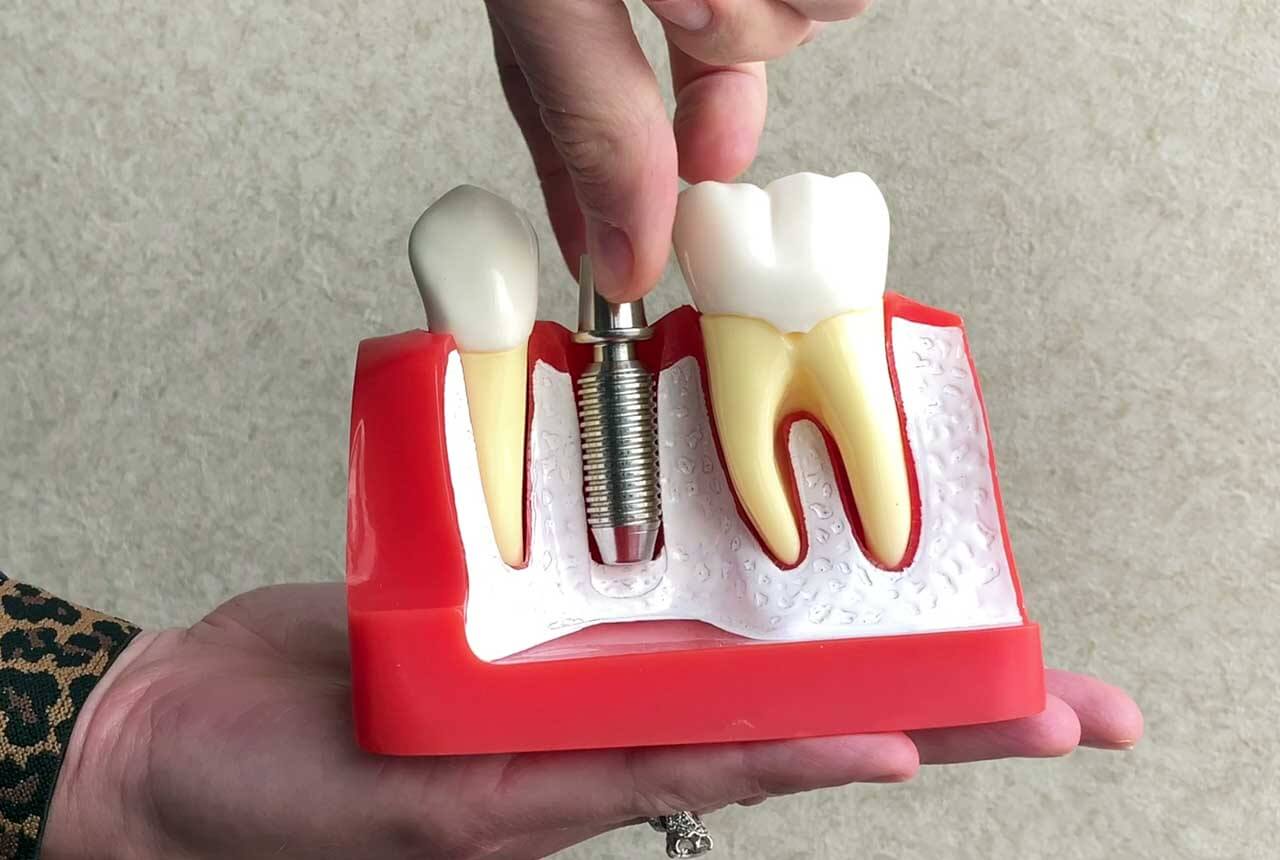How to Fix Dental Implant Failure: Expert Tips and Solutions

To fix dental implant failure, consult your dentist immediately for an assessment. Treatment may include cleaning, medication, or replacement.
Dental implant failure can be a distressing experience, but timely intervention can often resolve the issue. Dental implants may fail due to infection, insufficient bone support, or improper placement. Identifying the cause is crucial for effective treatment. Regular check-ups with your dentist can help detect early signs of failure.
Good oral hygiene practices and avoiding smoking can also reduce the risk of complications. Understanding the potential risks and symptoms can help in managing your dental health better. Always seek professional advice if you notice any discomfort or changes in your implant area.
Common Signs Of Implant Failure
Dental implants can fail. Knowing the signs can help you act quickly. Here are some common signs of dental implant failure.
Pain And Discomfort
Experiencing pain and discomfort around the implant site is a red flag. Pain should not persist after the initial healing period. If you feel pain, consult your dentist immediately.
Swelling And Inflammation
Swelling and inflammation near the implant area can indicate a problem. The swelling should reduce after the surgery. If it doesn’t, it might be a sign of infection or other issues.
Loose Implant
A loose implant can be a significant sign of failure. Implants should feel stable and secure. If yours feels loose, it may need professional attention.
Gum Recession
Gum recession around the implant is another concern. Healthy gums should fit snugly around the implant. Receding gums can expose the implant, leading to further complications.

Credit: www.atlantaperiodontics.com
Causes Of Implant Failure
Dental implants can fail for various reasons. Understanding these causes helps in prevention. Here, we discuss the main causes of implant failure.
Infection
Infection is a primary cause of implant failure. Bacteria can infect the implant site. This happens due to poor oral hygiene or surgical contamination. Infection leads to inflammation and bone loss around the implant.
Insufficient Bone Density
Insufficient bone density is another common issue. The implant needs strong bone support. If the bone is too thin or weak, the implant may fail. Bone grafting can sometimes help in such cases.
Improper Implant Placement
Improper implant placement can cause failure. The implant must be positioned correctly. Incorrect placement affects the stability and function of the implant. Skilled surgeons ensure proper alignment and depth.
Poor Oral Hygiene
Poor oral hygiene is a significant factor. Failing to clean the implant area leads to plaque buildup. Plaque can cause gum disease and bone loss, affecting the implant. Regular brushing and flossing are essential for implant care.
Immediate Steps To Take
Dental implant failure can be stressful. There are immediate steps to address it. Taking quick action is vital for a good outcome. Follow these steps to manage the issue effectively.
Consult Your Dentist
The first step is to consult your dentist. They will assess the situation. Your dentist will guide you on the best course of action. This could involve adjustments or additional treatments.
Avoid Hard Foods
To protect the implant, avoid hard foods. These can damage the implant further. Stick to soft foods like mashed potatoes, yogurt, and soups. This will help in reducing pressure on the implant.
Maintain Oral Hygiene
Good oral hygiene is crucial. Brush and floss gently around the implant. Use an antibacterial mouthwash to prevent infection. Keeping your mouth clean promotes healing.
Use Medications As Prescribed
Your dentist may prescribe medications. Take these medications as prescribed. They can include pain relievers or antibiotics. Follow the dosage instructions carefully for the best results.
Diagnostic Procedures
Identifying the cause of dental implant failure is crucial. This helps determine the best treatment. Various diagnostic procedures can aid in this process. Below are the most common methods:
X-rays
X-rays are often the first step in diagnosing dental implant issues. They help detect bone loss around the implant. X-rays can also show if the implant is not properly aligned. This method is quick and painless.
Ct Scans
CT scans provide a detailed 3D image of the mouth. This helps in assessing the exact position of the implant. It also shows the condition of the surrounding bone and tissues. CT scans are more detailed than X-rays.
Clinical Examination
A clinical examination involves a dentist physically inspecting the implant area. They check for signs of infection or inflammation. The dentist may also test the stability of the implant. This step is essential for a comprehensive diagnosis.
Blood Tests
Blood tests can reveal underlying health issues. Conditions like diabetes or infections can affect implant success. Blood tests help in identifying these problems. Treating these conditions can improve implant health.
Treatment Options
Dental implants can sometimes fail due to various reasons. Understanding the treatment options is crucial for addressing implant issues. Here are some effective methods to fix dental implant failure.
Antibiotic Therapy
Infection around the implant site can lead to failure. Antibiotic therapy helps to eliminate harmful bacteria. Dentists may prescribe antibiotics to control and reduce infection. This treatment can save the implant if caught early.
Bone Grafting
Insufficient bone around the implant can cause instability. Bone grafting involves adding bone material to the affected area. This strengthens the foundation for the implant. The new bone material can come from your own body or a donor.
| Type of Bone Graft | Source |
|---|---|
| Autograft | Your own body |
| Allograft | Donor body |
Implant Removal
Sometimes, the implant cannot be saved. In such cases, implant removal is necessary. This involves extracting the failed implant from your jaw. After removal, the area is cleaned and treated to prepare for future procedures.
Re-implantation
Once the site is healthy, a new implant can be placed. Re-implantation involves inserting a new implant into the treated area. This step requires proper healing of the previous site. Regular follow-ups ensure the new implant integrates well.
- Ensure proper healing before re-implantation.
- Follow dentist’s guidelines for post-procedure care.
- Attend regular check-ups to monitor progress.
Preventive Measures
Preventing dental implant failure is crucial. By following these preventive measures, you can maintain the health of your dental implants.
Regular Dental Check-ups
Regular dental check-ups are essential for preventing implant failure. Visit your dentist every six months.
Your dentist will check for signs of problems. Early detection can prevent major issues.
Proper Oral Hygiene
Maintaining proper oral hygiene is vital. Brush your teeth twice daily.
Use a soft-bristle toothbrush and fluoride toothpaste. Floss daily to remove food particles.
Consider using an antibacterial mouthwash. It helps reduce bacteria in your mouth.
Avoid Smoking
Smoking can lead to implant failure. Nicotine reduces blood flow to your gums.
This makes healing difficult. Quitting smoking improves implant success rates.
Balanced Diet
A balanced diet supports overall health. Include vitamins and minerals in your meals.
Eat foods rich in calcium and vitamin D. They strengthen your bones and teeth.
Avoid sugary snacks and drinks. They can harm your dental implants.
| Preventive Measure | Action |
|---|---|
| Regular Dental Check-ups | Visit dentist every six months |
| Proper Oral Hygiene | Brush and floss daily |
| Avoid Smoking | Quit smoking |
| Balanced Diet | Eat nutrient-rich foods |
- Regular Check-ups: Visit your dentist twice a year.
- Oral Hygiene: Brush, floss, and use mouthwash daily.
- Avoid Smoking: Quit smoking to improve implant success.
- Balanced Diet: Eat foods rich in calcium and vitamin D.
Choosing The Right Implant Specialist
Choosing the right implant specialist can make a big difference. An expert can fix dental implant failure effectively. Below are key factors to consider.
Qualifications To Look For
Check if the specialist has a degree in dental surgery. Look for additional certifications in implantology. These qualifications ensure the specialist has formal training.
- Dental surgery degree
- Certifications in implantology
- Membership in dental associations
Experience And Track Record
Experience matters a lot in dental implant procedures. Find out how many years the specialist has been practicing. Check their success rate with previous implants. The more experienced, the better the chances of fixing your implant failure.
| Criteria | Details |
|---|---|
| Years of Experience | 10+ years preferred |
| Success Rate | 95% and above |
Patient Reviews
Patient reviews provide insights into the specialist’s skills. Look for reviews online or ask for referrals. Positive reviews indicate a good track record. Negative reviews should be a red flag.
- Check online review platforms
- Ask for patient referrals
- Read both positive and negative reviews
Consultation Process
The consultation process is crucial. A good specialist will take time to examine your case. They will explain the procedure in simple terms. They should also discuss risks and benefits.
- Initial examination
- Discussion of procedure
- Explanation of risks and benefits

Credit: www.smiledesigndentistry.com
Long-term Care Tips
Long-term care is crucial for the success of dental implants. Proper care helps avoid dental implant failure. Follow these essential tips to keep your implants healthy.
Routine Dental Visits
Regular dental visits are vital. Schedule check-ups every six months. Your dentist will inspect your implants. They will clean them professionally. Regular visits prevent complications.
Daily Cleaning Techniques
Brush your teeth twice a day. Use a soft-bristle toothbrush. Choose a non-abrasive toothpaste. Floss daily to remove plaque. Consider using an interdental brush. Rinse with an antibacterial mouthwash.
Dietary Recommendations
Avoid hard and sticky foods. They can damage your implants. Eat a balanced diet rich in vitamins. Drink plenty of water. Limit sugary and acidic foods. These can cause gum disease and decay.
Recognizing Early Warning SigWatch for signs of implant failure. Red or swollen gums are a warning. Pain or discomfort is a sign. Loose implants need attention.

Credit: www.novelsmiles.com
Frequently Asked Questions
Can A Dental Implant Be Fixed If It Fails?
Yes, a failed dental implant can often be fixed. Treatment may include removing the implant, bone grafting, and placing a new implant.
What Happens If Your Body Rejects A Dental Implant?
If your body rejects a dental implant, you may experience pain, swelling, and infection. The implant might loosen or fail. Consult your dentist immediately for evaluation and treatment.
What Does A Failed Dental Implant Look Like?
A failed dental implant often appears loose or moves. You may notice redness, swelling, or pus around the implant.
How Long Does It Take For A Dental Implant To Reject?
A dental implant can reject within the first few weeks to months. Early signs include pain, swelling, or infection.
Conclusion
Addressing dental implant failure promptly is crucial for oral health. Consult your dentist for the best treatment options. Regular dental check-ups ensure longevity of your implants. Adopting good oral hygiene practices can prevent future issues. Stay proactive and informed to maintain a confident, healthy smile.